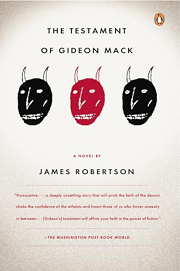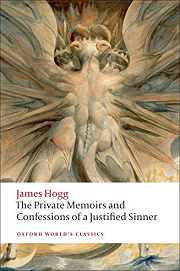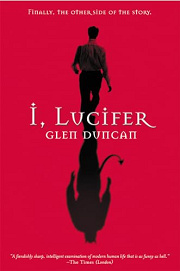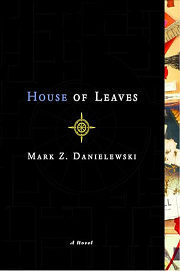Share your thoughts in a quick Shelf Talk!
The Testament of Gideon Mack by James Robertson
A minister confronts a crisis of faith after a mysterious encounter reframes everything he believes—about truth, myth, and himself. Haunting and introspective, The Testament of Gideon Mack is a modern parable that asks how we tell the stories that define us.
Have you read this book? Share what you liked (or didn’t), and we’ll use your answers to recommend your next favorite read!
Love The Testament of Gideon Mack but not sure what to read next?
These picks are popular with readers who enjoyed this book. Complete a quick Shelf Talk to get recommendations made just for you! Warning: possible spoilers for The Testament of Gideon Mack below.
In The Testament of Gideon Mack, did you enjoy ...
... a faith-wracked confession from a narrator you’re never sure you can trust?
The Private Memoirs and Confessions of a Justified Sinner by James Hogg
If what hooked you in The Testament of Gideon Mack was Gideon’s first-person testament—his insistence that he met the Devil after the gorge accident, even as the evidence stays stubbornly ambiguous—Hogg’s classic will feel like the dark well it sprang from. A young zealot writes his own confession while shadowed by the uncanny figure of Gil-Martin, and the tale is later reframed by an editor who casts doubt on everything you’ve read. That same slippery uncertainty you loved in Gideon’s manuscript—was the Devil real, or is this a mind splintering under pressure?—is the pulse of this book.
... a relentless, intimate interrogation of faith under duress?
Silence by Shūsaku Endō
You were drawn to Gideon’s paradox—a minister who doesn’t believe—his crisis exploding after the fall and the scandal that ripples through his parish. In Silence, a Jesuit priest journeys to 17th‑century Japan, where faith is pressed until it either breaks or transfigures. Like Gideon’s secret disbelief and his desperate need for a sign (even accepting a Devil in trainers over a silent God), Endō’s story confronts prayer that seems unanswered and the moral wreckage that follows. It’s the same bracing honesty about doubt, but turned to a white heat.
... a sardonic, worldly Devil stepping into everyday life?
I, Lucifer by Glen Duncan
If you relished the scenes where Gideon swaps plainspoken, unsettling conversations with the Devil after his rescue from the gorge—and how those episodes feel weirdly plausible in a modern Scottish town—I, Lucifer leans into that vibe. Lucifer narrates in first person after borrowing a human body for a London holiday, offering caustic wit, theology, and temptation in a recognizably real world. The supernatural slips into the mundane the way that standing stone and those post-accident encounters did for Gideon: low-key, unnerving, and hard to shake.
... a tormented, confessional unraveling of love, guilt, and the possibility of God?
The End of the Affair by Graham Greene
Beyond the Devil, part of what makes The Testament of Gideon Mack sting is the raw inwardness: the confession of a man torn between desire, duty, and disbelief, and the fallout that engulfs his community. Greene’s novel offers a similarly intimate reckoning. Maurice Bendrix’s account of an affair becomes a spiritual autopsy, where jealousy tangles with the question of miracles and vows. If Gideon’s private transgressions and his uneasy brush with grace gripped you, this exquisitely honest confession will, too.
... a found-manuscript framed by an outsider editor that makes truth feel slippery?
House of Leaves by Mark Z. Danielewski
Part of the thrill in The Testament of Gideon Mack is how you read a recovered testament—Gideon’s own words—shaped by an external compiler, which keeps you questioning what actually happened in that gorge and afterwards. House of Leaves amplifies that layered experience: a discovered manuscript about an impossible house is annotated, argued with, and reframed by another narrator until the story becomes a maze of versions. If you enjoyed piecing together Gideon’s fate from a framed confession, this labyrinthine dossier will scratch the same itch.
Unlock your personalized book recommendations! Just take a quick Shelf Talk for The Testament of Gideon Mack by James Robertson. It’s only a few questions and takes less than a minute.





